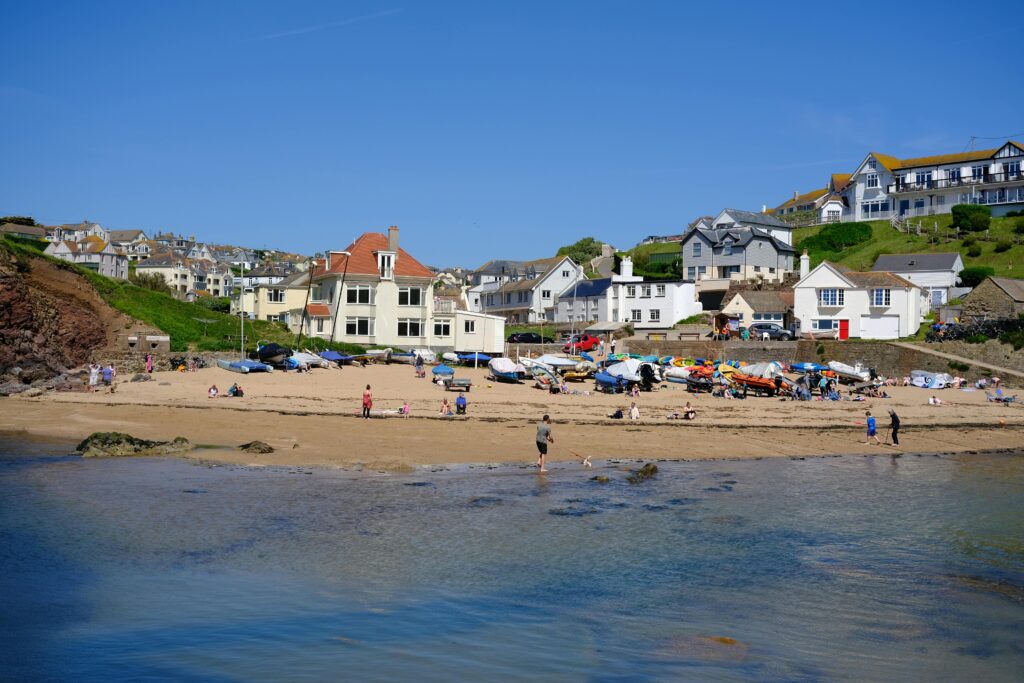As spring weather smiled on England’s southwest, tourism businesses across Devon and Cornwall reported a buoyant start to the 2025 season. From volunteer-run pools to holiday parks, operators are optimistic that recent sunshine and proactive local campaigns will translate into a record-breaking year—despite headwinds from rising costs and staffing challenges.

A £200 Million Springboard
Visit Devon and Visit Cornwall estimate the Easter and spring season alone is worth over £200 million to the regional economy. After a chilly start last year, mild temperatures and clear skies have driven early bookings and footfall:
- Bude Sea Pool, managed by volunteers, saw membership sign-ups climb by 30% compared to April 2024, thanks to tropical-style weather that saw the rock-pool filled daily.
- Lady’s Mile Holiday Park in Dawlish Warren reported a 25% uptick in Easter-week bookings, crediting locals venturing out “sooner than usual” after warm March days.
These early gains help offset the seasonal dip that traditionally hits the region in April, when overnight stays typically lag 10–15% below summer peaks.
Balancing Bright Skies and Rising Bills
Even with strong demand, tourism leaders warn of mounting pressures:
- Operating Costs: A 1 percentage-point rise in National Insurance and the increase of the UK living wage to £11.44 per hour have increased payroll expenses by up to 8% year-on-year for seasonal employers.
- Energy and Supplies: Businesses report a 20% higher spend on utilities and cleaning supplies than two years ago, squeezing already thin margins.
- Staffing Shortages: Cornwall’s Holiday Park Association notes that 40% of its members are struggling to recruit enough seasonal staff, with local housing costs deterring applicants.
To alleviate these pressures, Visit Devon and Visit Cornwall are working with councils to expand temporary worker accommodations and are piloting energy-efficiency grants for small operators.
Promoting the ‘Local Staycation’
Recognizing that some UK holidaymakers face tight household budgets, tourism boards have launched targeted campaigns:
- “Explore Your Own Backyard”: Encouraging residents within a 2–3 hour drive to book midweek breaks, offering discounted rates at participating hotels and B&Bs. Early metrics show a 15% increase in midweek queries since the campaign’s March launch.
- Package Deals: Collaborations between accommodation providers, local pubs, and attractions have created all-inclusive “weekend explorer” packages starting at £150 per person, designed to spread visitor spend across rural pubs, heritage sites, and outdoor-activity operators.

Spotlight on Sustainability and Community
Tourism growth is being balanced with environmental protection and community benefit:
- Plastic Reduction: Over 50 coastal businesses have signed up for a “Plastic-Free Coast” pledge, eliminating single-use plastics and installing refill stations.
- Community Partnerships: Bude Sea Pool now channels a portion of membership fees into local conservation projects, while holiday parks partner with marine-wildlife charities to offer guided beach-clean events for guests.
- Transport Initiatives: Devon County Council is trialing an electric-shuttle service linking key towns to popular attractions, aiming to cut visitor car trips by 10% this year.
Frequently Asked Questions
Q: How significant is the spring season for southwest tourism?
A: Spring dibs about 15–20% of annual visitor revenues. Early demand can signal a strong summer, making Easter and spring weather crucial for cash flow.
Q: What weather trends helped this year’s start?
A: March 2025 was the sunniest on record for southwest England, with 25 clear days—15% above the 10-year average—boosting early bookings.
Q: Are rising costs deterring visitors?
A: Despite high energy and wage costs, offsetting discount packages and local-market campaigns have kept occupancy rates stable, with some businesses reporting full-booked weekends through June.
Q: How are businesses tackling staff shortages?
A: Operators are offering staff-housing stipends, partnering with universities for “gap-year” internships, and recruiting through European seasonal-work schemes.
Q: What transport options are available to reduce traffic?
A: New electric-bus shuttles and expanded park-and-ride schemes are being piloted around Exeter and Truro to ease congestion and lower emissions.
Q: How can locals get involved?
A: Residents can take advantage of discounted “local stay” rates and participate in community-led events like volunteer beach cleans and guided nature walks.
Q: Are there any sustainability certifications for hotels?
A: Yes—over 100 southwest properties now hold the Green Tourism Gold or Silver awards, signaling robust eco-practices.
Q: What are the main challenges ahead?
A: Maintaining service quality amid staff shortages, managing environmental impacts of higher visitor numbers, and controlling operational costs remain key concerns.
Q: Is there a forecast for the full year?
A: Industry analysts project a 5–7% uplift in total visitor spend for 2025 if warm weather continues into the summer and no major economic shocks occur.
Q: How do tourism boards support small operators?
A: Visit Devon and Visit Cornwall offer business-development grants, digital-marketing workshops, and crisis-management resources to bolster resilience.

Sources BBC


